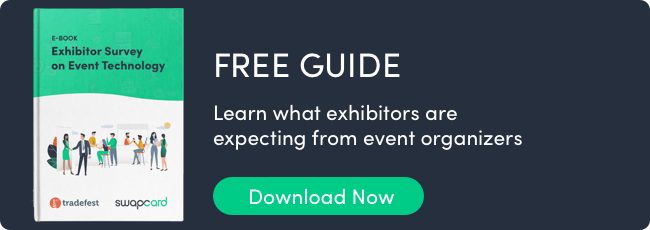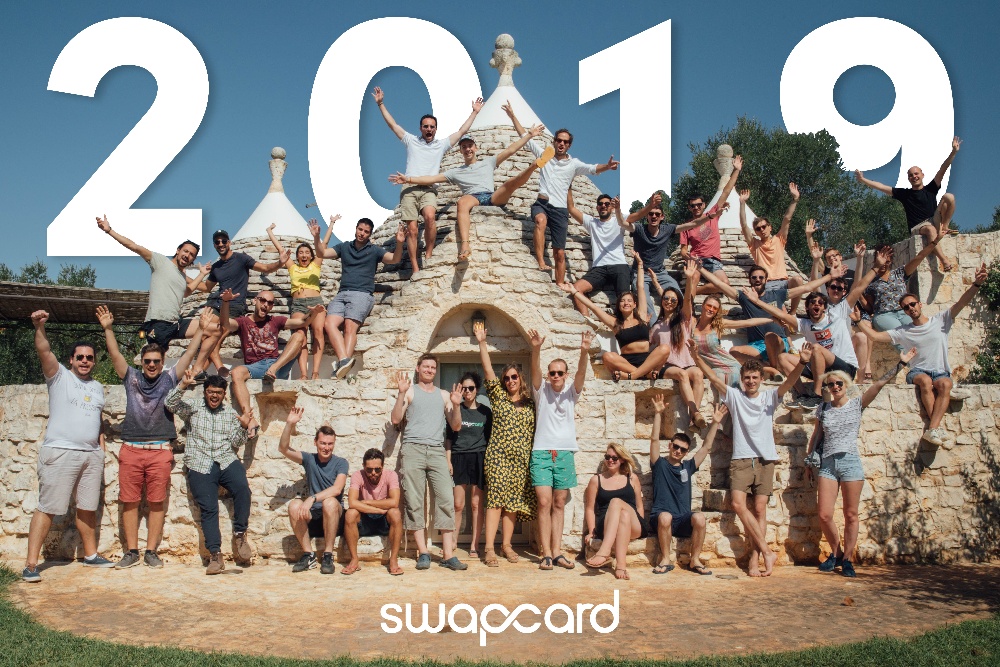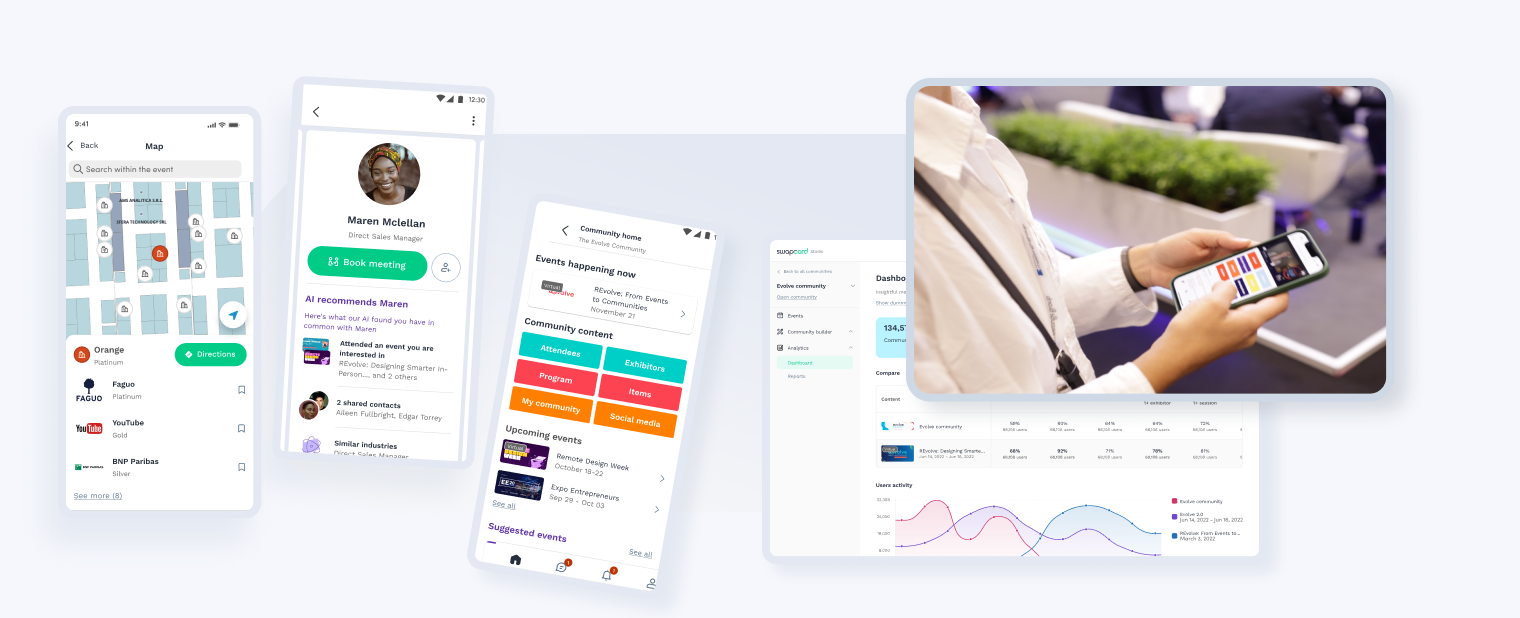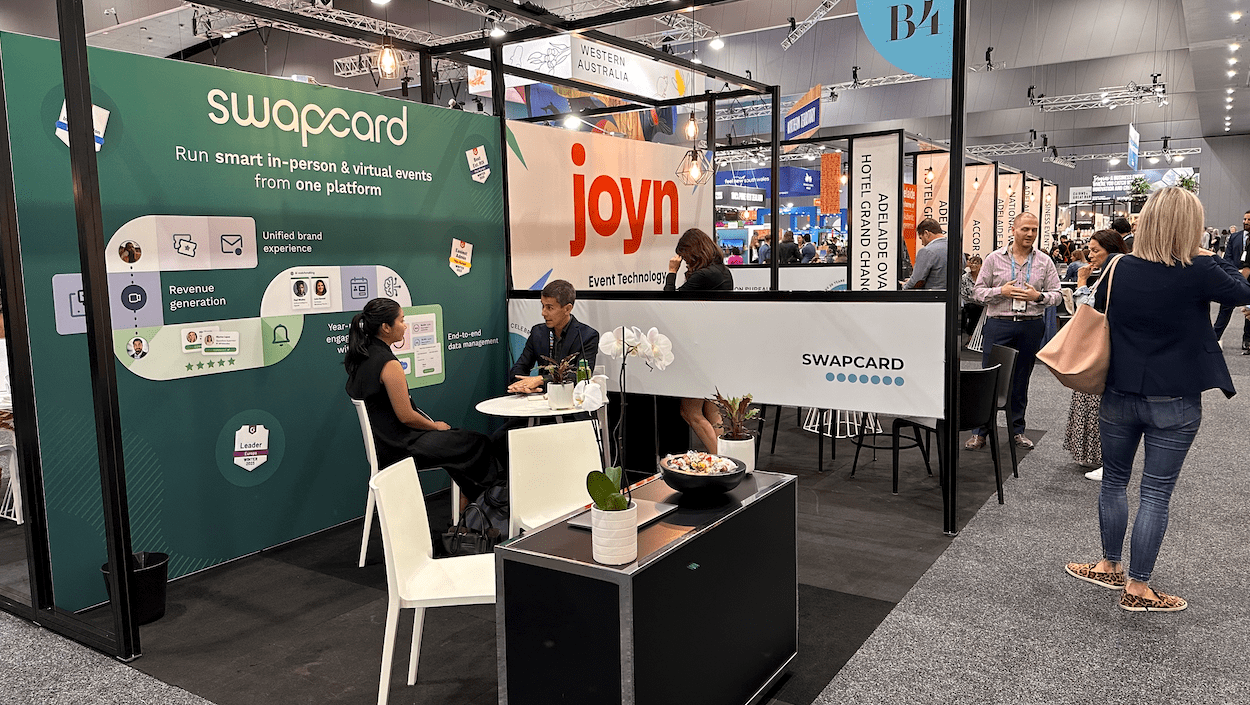2018 Burning Man tickets sold out within a half hour.
That’s 26,000 tickets, sold at $425 each, gone in less time than it would take for most “Burners” to pack for Black Rock Desert.
For most event organizers, launching a sold-out show is very high on the agenda. Speakers, sponsors, and your own team are rightfully counting on you to fill seats and drive foot traffic.
Even just the thought of investing all your time and energy to throw an outstanding event, only to arrive day-of to see rows upon rows of empty seats and vacant booths, is the stuff of nightmares.
Fortunately, there are many creative and effective — and even free — ways to promote an event. In this article, we’ll cover 11 tactics you can begin implementing today:
1. Incentivize attendees to promote your event
Often one of the most wasted online opportunities is the “Thank you for purchasing” page right after a customer buys a ticket.
By the time the customer arrives on this page, they’ve already done the hardest step: pulling out their credit card to make a purchase. They’re already “sold” on the value of your event, and emotions are likely to be high after they click the purchase button. If you leverage this next moment well, you can guide customer enthusiasm to help you market the event.
Do you have a VIP section at your conference? Have some extra t-shirts or conference swag you could give away? Have a speaker who is willing to donate their book?
Use free swag or conference upgrades to prompt a viral word-of-mouth marketing campaign. All you have to do is design your post-purchase page as an opportunity to get more out of the event for referring people they know: The customer gets a friend to buy a ticket = you reward them with an upgrade or free swag.
According to an academic study about viral marketing, the best word-of-mouth marketing includes three key factors: “reward, security, [and] ease of share.”
With a little incentive, many customers will gladly forward your conference details to a few colleagues just to get their hands on some complimentary upgrades or gear.
Bonus: If you want to build out a more advanced referral engine, I recommend looking at Morning Brew’s milestone-based referral program.
2. Email marketing
Social media gets a lot of hype. But the numbers are clear: Email marketing results in greater sales than social media marketing.
If you have a newsletter following, email your followers promotions for the upcoming event. I recommend sending a mix of informational and purely promotional content.
The informational content should inspire wonder and curiosity in your readers. If your event will include speakers, consider asking one of them to give a sneak-peak into their talk by telling a short story or dropping an interesting statistic. If you can get video, even better.
The promotional content should be action-driven, with a clear “Buy Now” CTA somewhere in the email. According to best direct response sales techniques, giving a deal with a deadline — to create a sense of urgency — is also key to driving sales.
This mix of value-added content + promotion will boost open rates and hopefully sales.
3. Twitter hashtag mining
Most major events these days have their own hashtag. You can reverse engineer hashtags from prior industry events to find and contact potential attendees for your event.
Here’s how it works:
Consider the largest events that happen in your industry and city. Discover the hashtags associated with those events and then search for them on Twitter.
You’ll uncover a treasure-trove of highly-qualified potential attendees. These people have three factors going for them:
- They live in (or have traveled to) your city
- They attend events like yours
- They are active event promoters
Inviting these Twitter users is easy. Manually invite each of them to your event by direct messaging each person with a simple message like: “I saw you enjoyed your time at _____ conference last fall. I wanted to invite you to a similar event happening in two weeks in the same city…”
If you don’t have access to their DMs, consider doing a bit more research to find their email address or conversationally respond to their old event tweets (as un-obnoxiously as possible).
4. PR outreach
Find reporters who frequently attend and cover events in your industry. Send them free VIP media credentials and promise to answer any questions they have regarding speakers, schedules, or anything else they may be interested in.
Here’s how you find these journalists:
Use Followerwonk, a free online tool, to search Twitter profiles for certain keywords. Use keywords that might appear in a relevant journalist’s profile. For example, if you want to find a reporter to cover your HR event, type: “reporter” and “human resources.”
You may get free publicity from the reporter about the event.
5. Leverage conference apps and websites
According to the Harvard Business Review, “With the newest generation of event marketing software, companies can finally begin to track the degree to which their events are translating into real revenue and profit growth.”
Conference technology is evolving. The latest apps are opening new possibilities — and raising attendee expectations — for live events. There’s no end to how technology can be implemented at an event. There are scores of online websites, social media networks, and apps for uploading event details, Eventbrite being the most notable.
But once your event is live and in full force, the marketing doesn’t stop. Want your guests to return to your events next year and again the year after that? Give them a remarkable conference experience the first time.
The key is to use conference technology that helps everyone get the most out of your event, boosting connection and lead generation to help each attendee and vendor achieve meaningful business outcomes.
For instance, Swapcard makes it easier for vendors, attendees, and speakers to accomplish their respective event goals. Vendors can schedule meetings with qualified buyers. Attendees can network with relevant people. Speakers can draw more guests to their talks.
6. Leverage your speakers and sponsors
“Worth just $2 billion in 2017, the [influencer marketing] industry is set to reach $10 billion by 2020 as the industry witnesses more growth and becomes a more effective marketplace,” reports Digital Marketing Institute. And this growth shouldn’t be surprising, considering that “businesses earn $6.50 for each dollar spent on influencers with the top 13% earning $20 or even more.”
But you don’t always have to spend money to leverage the power of influencers.Will your event include speakers or sponsors? That’s your opportunity to dip into someone else’s audience to find new event attendees.
Send all your sponsors and speakers a quick email asking them to promote the event to their newsletter and social media subscribers. Include downloadable photos or logos that they can use for promotion.
If you want to make marketing easy for your speakers (to ensure they make time to promote it), you can even ghostwrite most of the promotional copy ahead of time. That way, you take labor out of the equation. All the speaker has to do is copy, paste, and share.
7. Partner with local organizations
If your event will take place in a major metropolitan area, consider offering special ticket discounts to local companies, groups, and nonprofits in your city. Tell these organizations that you’d like to offer their members exclusive discounts for attending your event.
It’s very normal for organizations to go out of their way to find and promote events like yours to their members. You may find that these same organizations will gladly share your exclusive promotion with all their members, possibly leading to a healthy uptick in sales.
8. Publish interesting content
Content marketing on social media can be a great way to drive people within your network to an event. The key to good content marketing is to be helpful. Publish interesting articles, graphics, photos, or videos that give immediate value to the viewer.
At the end of your post, use one or two lines to promote your event. Use upsell language like: “Want to learn more about this topic? Attend our summit on October 12th.”
We touched on this briefly above: If your event includes speakers, find ways to involve some of them in your content creation process. If they don’t have time to write a short guest post for you, then ask to conduct a brief interview with them that you can publish. Make sure to tag the speaker in the finished post so their following sees the content as well.
If you have someone who is the face of your organization or the event, consider pitching to be a guest on podcasts within their subject matter. By mentioning your upcoming event or event series on a podcast, you can easily spread the word to a captive audience, which could influence ticket sales across event locations.
9. Local SEO
Search engine optimization isn’t something that happens overnight. If you throw a website up today, the next morning it won’t rank at the top of Google.
However, if you already have a website, or would like to create a website as an investment for all your future events, then local SEO can be a strong way to promote localized events.
Use local SEO best practices. Here are a few:
Use the city name in titles and body copy: We’re not talking about keyword stuffing here. But Google relies on the language on your website to accurately and relevantly rank your site. Use language like: “Event in Paris,” “London conference,” and similar clear key phrases in the body and title copy to inform Google about what you’re promoting.
Create backlinks using event discovery websites: Google uses backlinks to determine the reputation of a website. There are ways to earn backlinks through guest posting or getting your event featured in local news. But you can also create your own backlinks by linking your website to event discovery websites like Eventbrite.
10. Use all your regular marketing channels
This is obvious but needs to be said. Use your existing digital marketing channels to promote your upcoming event. Here are just a handful of techniques to include in your outreach:
- Post about your event on all business and personal social media channels
- Pin your event on Twitter
- Create an event on discovery websites like Facebook Events, and then invite people who may be interested
- Mention your event in your email signature
- Create a popup on your website for people to sign up for the event
- Create a landing page on your website where people can easily find information about pricing, dates, and speaking schedules
11. Cross-promote with other event organizers
If your event takes place in a major city, your conference is not the only one in town. Find and partner with other event organizers in your field. As long as your events don’t take place at the same time, offer to trade promotional channels with other organizers.
If you each have comparable newsletter followings, offer to send their conference info to your email list in exchange for having your conference featured in front of their audience.
Conclusion
In this article, we’ve considered 11 free ways to promote your next event. Some of these tactics included:
- Contacting journalists
- Different ways to effectively use social media
- Promoting and cross-promoting across newsletters
- Partnering with organizations and speakers
- Content marketing
- Using conference technology
- Search engine optimization
Getting the right people to an event isn’t easy. Effective promotion will require a lot of creativity. Hopefully this article has equipped and inspired you with new ideas that will get more guests through your doors.
As you brainstorm ways to make your next event a huge success, learn about Swapcard, the user-friendly app that helps everyone — attendees, speakers, and sponsors — connect with the right people.










